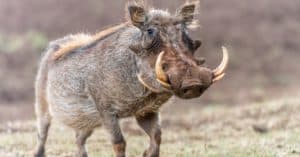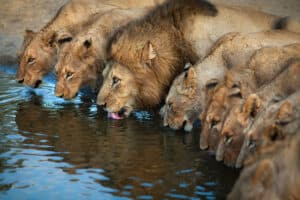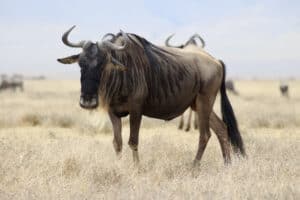Camels are one of the largest animals found in the desert and semi-desert regions of Africa and Asia. There has been a lot of confusion about them due to their structure and size.
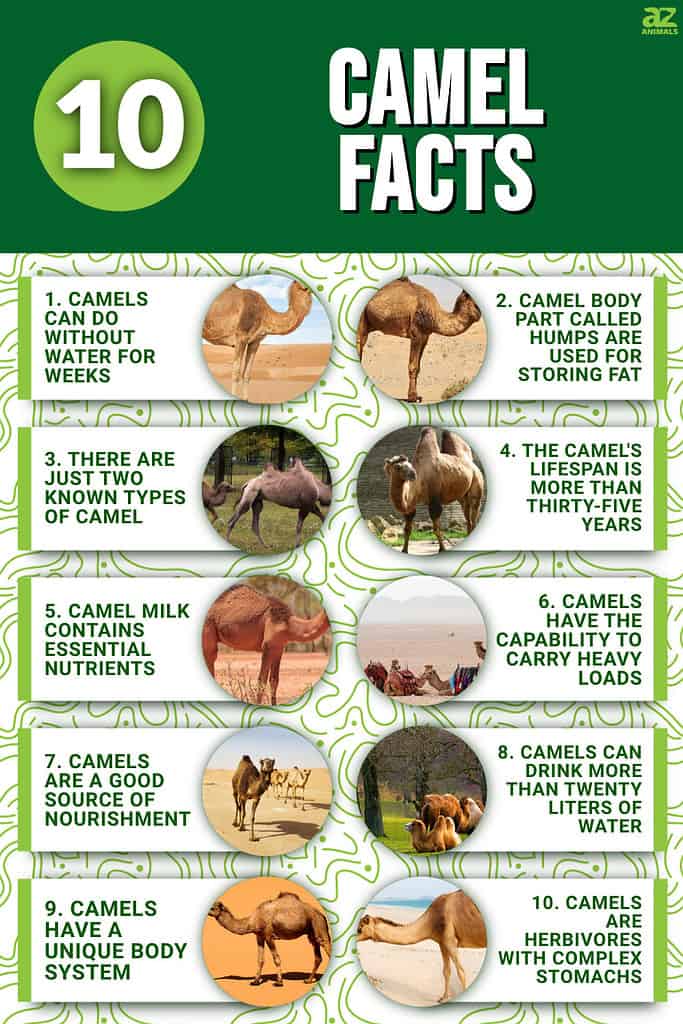
The central belief about camels is that they are mainly used for carrying loads by the nomads. Although the hypothesis is true, there are more incredible things about camels than being used for transportation. Below are ten incredible facts about a camel.
1. Camels Can Do Without Water For Weeks
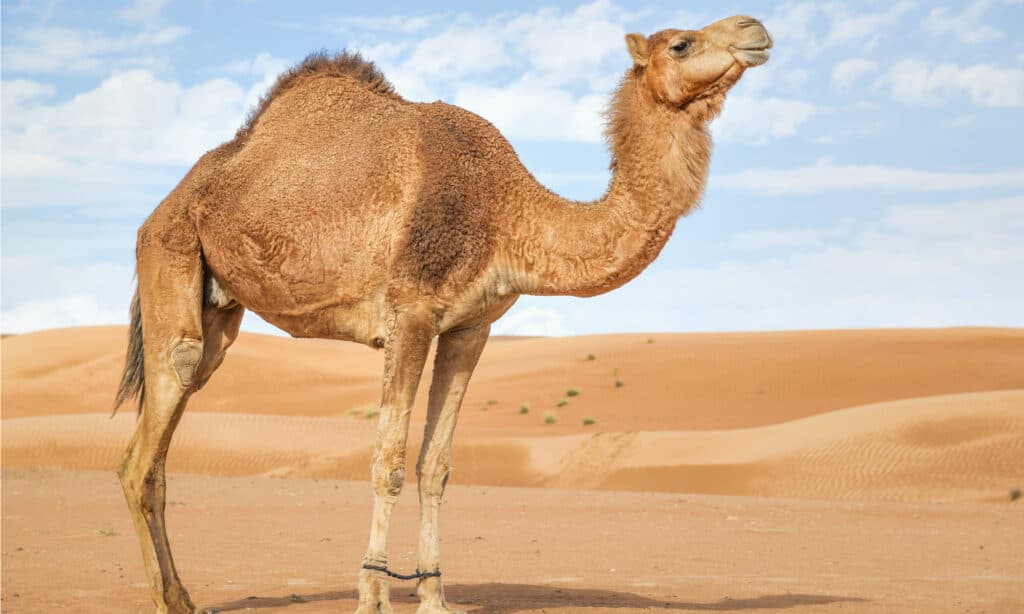
Camels are dubbed “ships of the desert” because of their ability to remain without water for weeks.
©Wolfgang Zwanzger/Shutterstock.com
The amount of time an average human body can stay without water is three days, but a camel survives more than that. Camels are dubbed “ships of the desert” because of their ability to remain without water for weeks. It’s because their body structure has very little sweat glands, which helps to reduce the loss of water in extreme temperatures.
In winter, camels can stay without water for more than five months. During that period, they utilize the stored water in their body system.
2. Camel Body Part Called Humps Are Used For Storing Fat
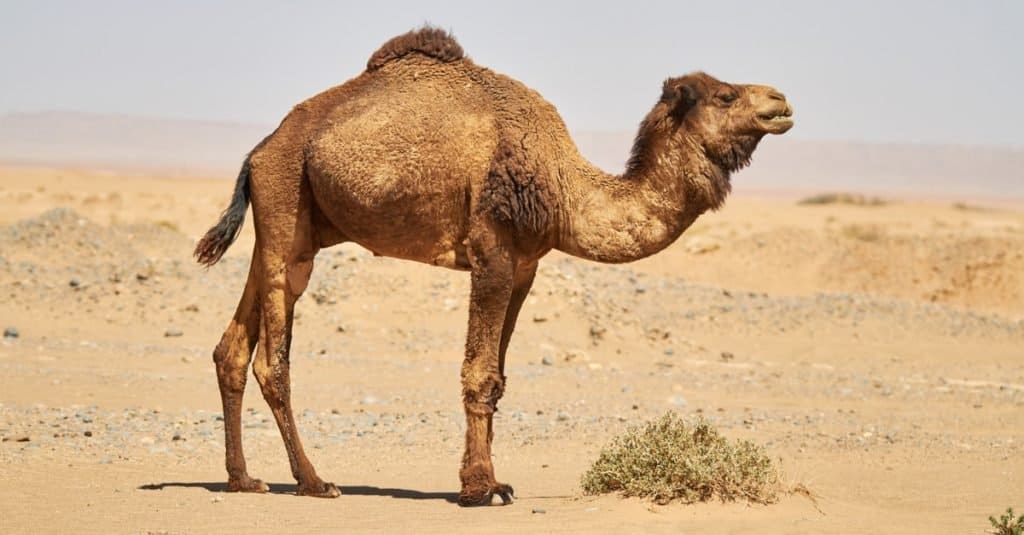
Camels store their fat in their humps.
©Photoestetica/Shutterstock.com
As your body stores fat in adipose tissue located in your skin, camels store their fat in their hump. The hump is a prominent structure located at the back of a camel. Depending on the species of the camel, a camel may have one or two humps.
The hump or humps serve as storage facilities for fat. The camel utilizes the stored fat during the drought period for nutrition purposes. The usage of the stored fat leads to a reduction in the size of the hump. Also, in the absence of water, the fats in the hump can be metabolized into water.
Furthermore, the hump serves as a heat regulator for the camel. It helps to regulate the body of the camel to the external temperature of the surroundings.
3. There Are Just Two Known Types Of Camel
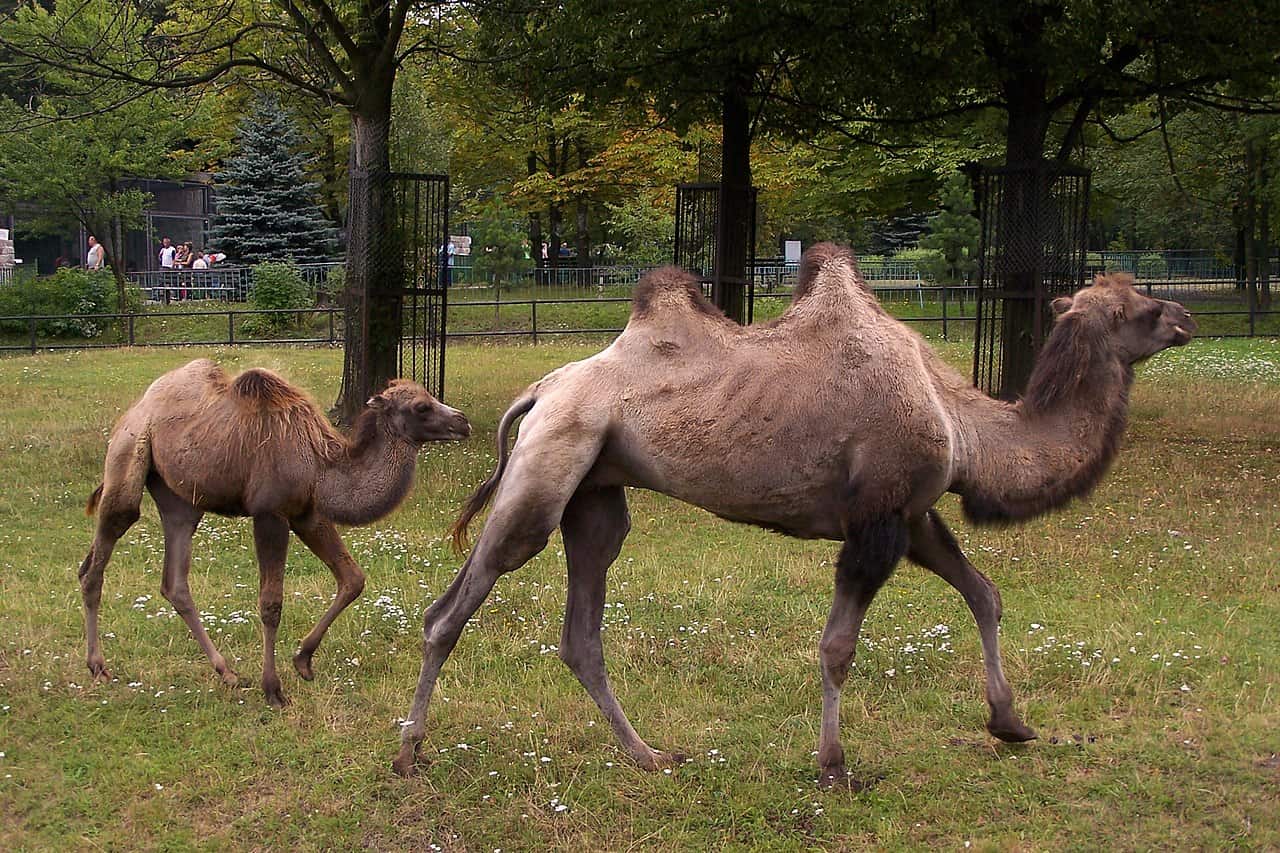
Bactrian camels have two humps and are typically wild, though some have been domesticated.
©Lestat (Jan Mehlich), CC BY-SA 3.0, via Wikimedia Commons – License
In the world, there are just two types of camel, and they are differentiated through their hump. The first major type is the dromedary camel, also called the Arabian camel. They are known to have only one hump.
The second type of camel is known as the Bactrian camel, which possesses two humps. The dromedary camel is domesticated primarily, while some Bactrian are domesticated, and the rest are wild.
4. The Camel’s Lifespan Is More Than Thirty-Five Years
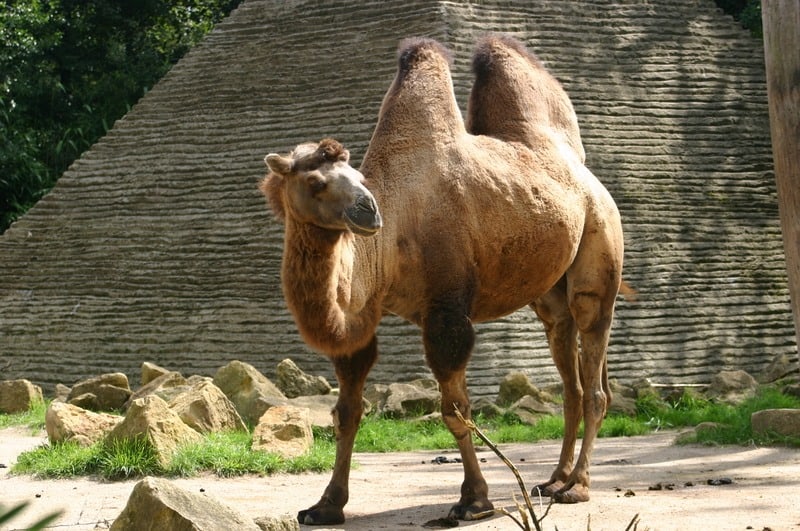
The camel has an average lifespan of 40 years.
©EmmanuelFAIVRE assumed (based on copyright claims), CC BY-SA 2.5, via Wikimedia Commons – License
It will interest you that camels live longer than 35 years. On average, a camel can live between 40-50 years. Another interesting fact about camels is that they can breed between three to five years.
Also, their gestation period lasts for more than a year and they give birth to a calf or twins occasionally.
5. Camel Milk Contains Essential Nutrients
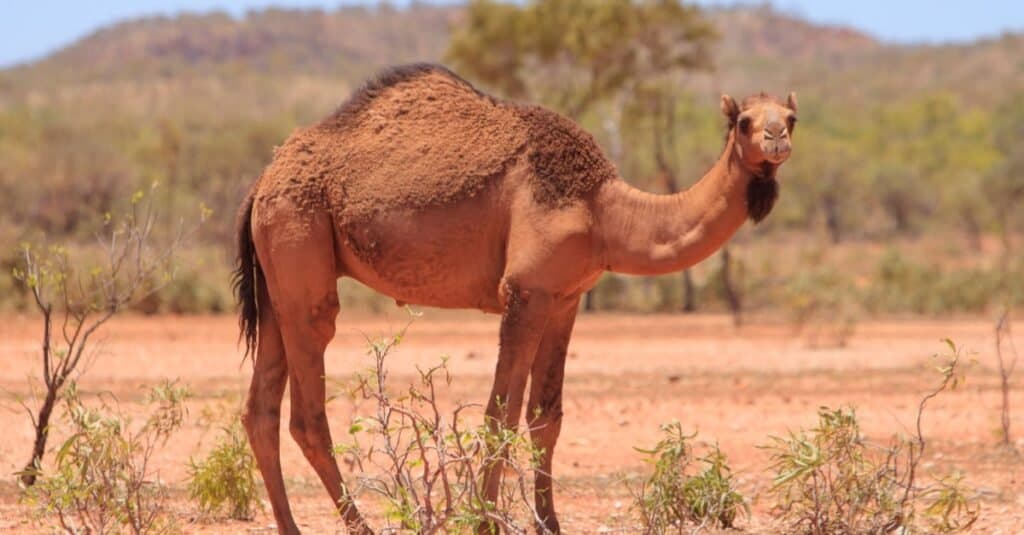
Camel milk contains a high amount of Vitamin C and Iron, helping to enhance an individual’s immune system.
©Chris Ison/Shutterstock.com
Another exciting fact about camels is that their milk contains a high amount of Vitamin C and iron. Also, research has shown that camel milk helps to enhance an individual’s immune system. Consuming camel milk also helps prevent diabetes and improve blood circulation.
6. Camels Have The Capability To Carry Heavy Loads
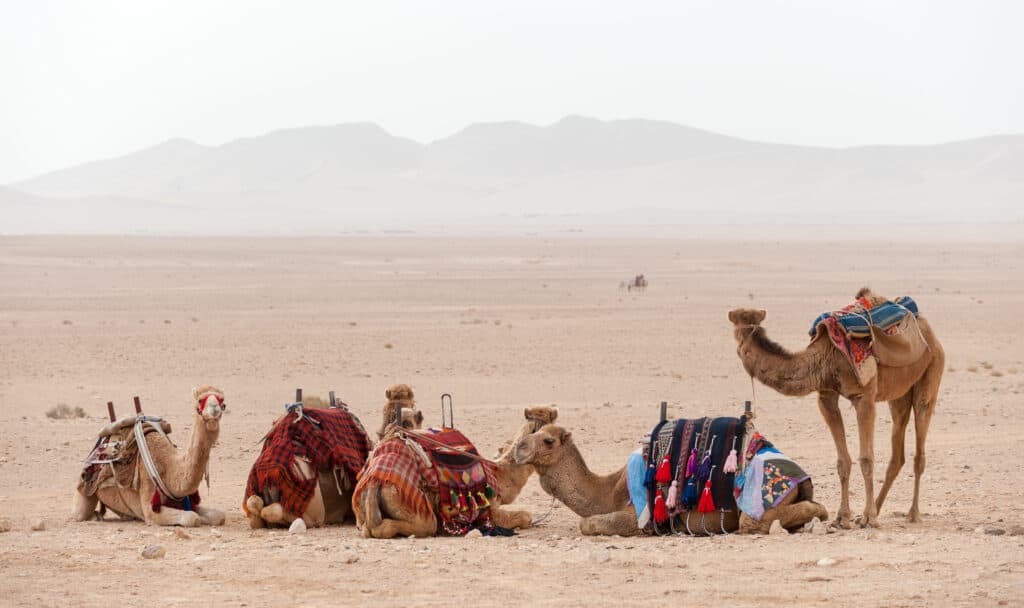
Camels are often utilized by humans to carry heavy loads, as they can carry up to 440 pounds of weight.
©Christoph Hilger/Shutterstock.com
The body of the camel is built to be able to move very heavy loads. An average camel can take more than 440 pounds of load at a particular time. Another interesting fact is that the camel has two legs on the same side which can move together while walking. Also, the fat stored in their hump enables them to walk without a break for water or food. They also have an average speed of 30mph.
7. Camels Are A Good Source Of Nourishment
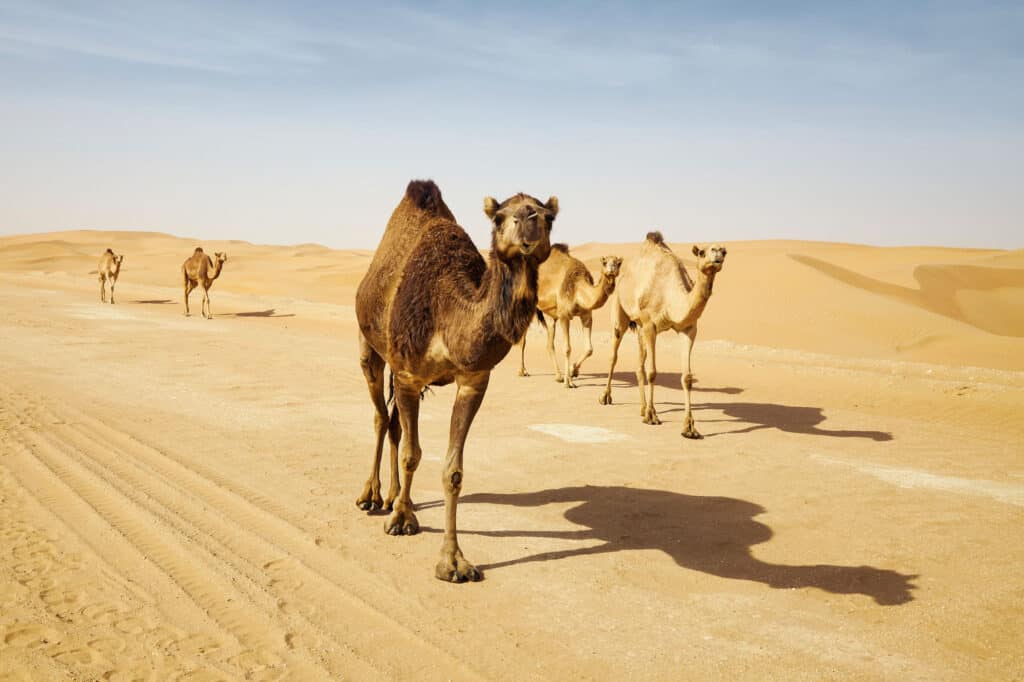
As they are good sources of vitamins, minerals, and protein, some humans consume camel meat and milk.
©iStock.com/Chalabala
Another interesting fact about camels is that they serve as a food source. Camel milk and meat are good sources of food for humans. A different analysis of camel milk has shown that the milk contains low cholesterol and high vitamins and minerals. Also, meat is a good source of protein for men.
8. Camels Can Drink More Than Twenty Liters Of Water
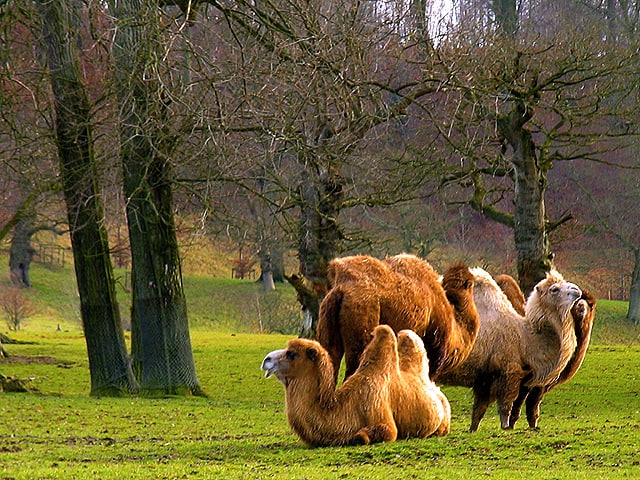
Camels have a modified body structure that allows them to store large amounts of water.
©Pam Brophy / CC BY-SA 2.0 – License
Camels have the ability to travel long distances in the desert without drinking water. Their ability to withstand drought is why they are highly populated in the desert.
Their body structure is also modified to store a large amount of water which will be used when there is no available water. In cases where they have to lose close to 40% of their body weight, they can consume forty liters of water to replenish it.
9. Camels Have A Unique Body System
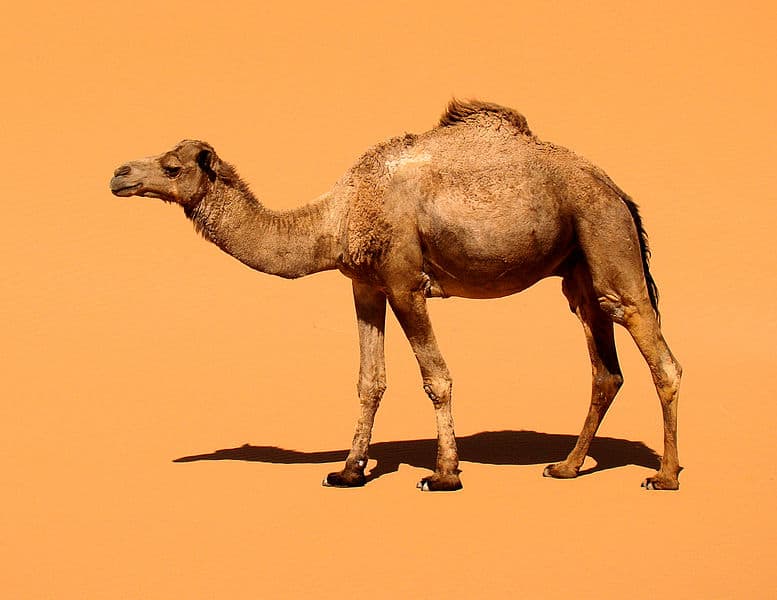
One feature that helps camels adapt to the desert climate is their brown-to-cream-colored fur, which helps to reflect the sun.
Another exciting fact about the camel is the uniqueness of its body. Camels possess some features that give them the ability to adapt to the climatic conditions in the desert. One of the significant features that help them adapt to the desert is the brown-to-cream color of their fur. The color of their hair easily allows them to blend with the environment and helps to reflect the sun.
Furthermore, camel’s thick and short hair helps to protect their skin against the sun during the day. The fur also keeps them warm during the night. Furthermore, it will interest you to know that the camel has a double layer of long eyelashes and two structured slit-like nostrils. The structures help to protect the camel from dust storms.
10. Camels are Herbivores with Complex Stomachs
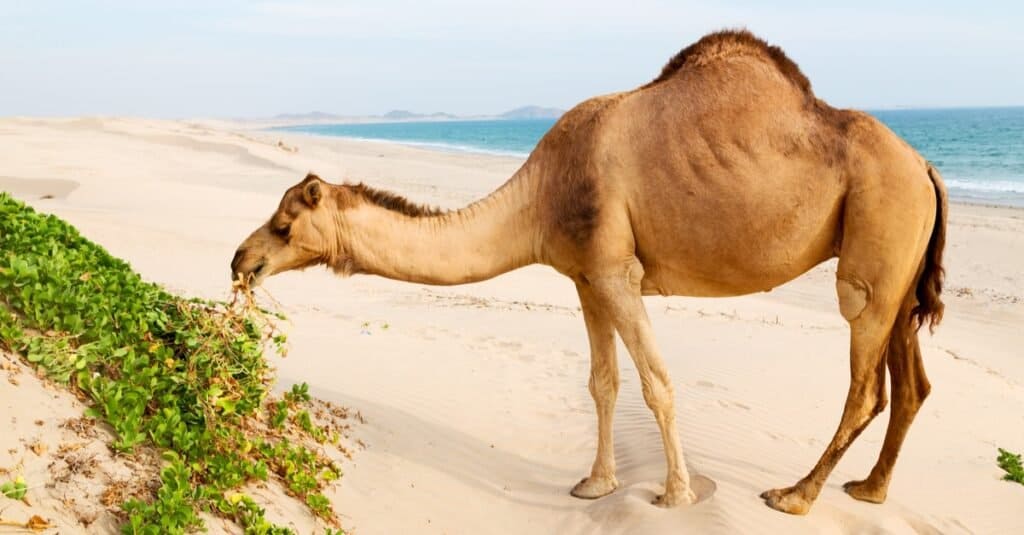
Similar to Camelids such as
Llamas
and
Alpacas
, camels possess three stomachs, which allow them to assess enough nutrients from poor and scarce food materials.
©lkpro/Shutterstock.com
Camels are unlike other ruminant animals. They are similar to Camelids such as Llamas and Alpacas. This group of animals has three stomachs, which allow them to assess enough nutrients from poor and scarce food materials.
Also, camels are herbivores that feed mainly on grasses. However, it has been discovered that they also feed on carrion and chew bones to enhance their diet. Furthermore, they can feed on thorny twigs without damaging their mouth.
The photo featured at the top of this post is © Chris Ison/Shutterstock.com
Thank you for reading! Have some feedback for us? Contact the AZ Animals editorial team.




